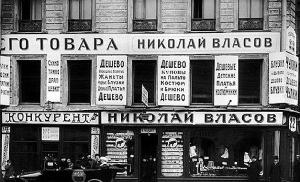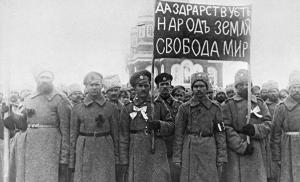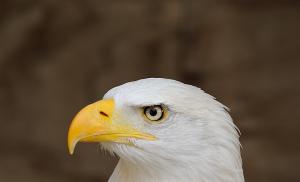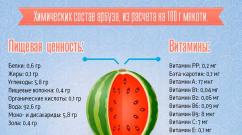The first person in Brunei. School encyclopedia
Original taken from maximkamax to Brunei: how people live

At first glance, Bruneians live in paradise! Judge for yourself: excellent climate - summer all year round; the country is rich in resources - there is nowhere to put the money; the population is small - almost the entire country consists of jungles, there are unusually few people for Asia. But something is wrong... The head of the state is Sultan Hassanal, who decides what and how his subjects will do. There are no elections, there is no opportunity to influence the situation. People live as pets, like cats. The Sultan wanted it and banned the sale of cigarettes 3 years ago, the people will be healthier. He wanted to - and he forbade celebrating Christmas.
And Sultan Hassanal is infallible! He issued a decree making this statement in 2006. The document says: “His Majesty the Sultan is incapable of making mistakes either in personal or in state affairs. No person shall publish or reproduce anything which may be prejudicial to the dignity, reputation, honour, nobility or sovereignty of His Majesty the Sultan.”
In general, the owner is always right... And for this he takes good care of his subjects...
Healthcare in Brunei is virtually free for citizens. For example, they do not take money from children under 12 years old, but for others, a standard consultation with a doctor costs 1 Brunei dollar, or 41 rubles. Remote areas of the country are served by mobile clinics and “flying doctors” in helicopters. In addition, there is a dedicated school health service. Here you need to understand that the country is very small, so they could build roads to remote settlements.
If some treatment is not available within the country, then patients are sent for treatment at public expense to other countries, for example, to Malaysia or Singapore. By the way, all Brunei doctors receive their education abroad, because within the country you can only study to become a nurse or pharmacist.

Brunei provides its citizens with free education at all levels, from kindergarten to university. Moreover, if an applicant enters a foreign university, the state pays for his studies abroad.
Bruneians speak mainly Brunei Malay, which is so different from regular Malay that Malaysians find it easier to communicate with their neighbors in English. By the way, very, very many people here speak English. A significant part of the population also speaks Chinese (by the way, 10% of Brunei residents are Chinese).

Brunei citizens are exempt from income tax. Moreover, they receive considerable subsidies from the state. But not everyone is lucky. However, many residents - about 16% in the early 2000s (mostly Chinese) - are stateless or hold British protected person passports and have to pay taxes.
According to some estimates, Brunei's oil reserves will run out by the end of the first quarter of the 21st century. That is, in just ten years, Brunei’s prosperity may come to an end. In addition, the current Sultan does not have very long to live. It will be interesting to see what happens to Brunei in troubled times.

As I already mentioned in the last post, since 2014 Brunei has been mastering Sharia law. Muslims feel great. The country even has a quota for Hajj (in recent years - 400 people). That is, the state pays for adherents of Islam every year to make a pilgrimage to Mecca.

By the way, this year Brunei and Saudi Arabia almost quarreled after the local English-language newspaper The Brunei Times, which was considered one of the relatively independent ones, criticized the Saudi authorities for increasing the cost of a pilgrimage visa “due to economic problems.” . The conflict was resolved very simply: the Brunei newspaper was immediately closed)

In general, people live as if in a golden cage. But something is not right here. Somehow sad. Greenhouse conditions do not allow people to develop. Brunei cannot boast of any special achievements either in culture or even in cuisine. People sit and idle all day long, do their own little things and that’s it. Ate, slept, lay down, ate, walked, slept. Like cats. Somehow I don’t like such greenhouse conditions at all. A person needs stress, life must be fucked up, difficulties must be overcome. We must live with the hope that tomorrow will be good. And if it’s good today, then why live then?

I don’t know... What do you think? Would you like to live like this?
Posts about Brunei:
July 12th, 2013
The country of Brunei is a small sultanate state, which is located in the northern part of the island of Kalimanth, or Borneo (whichever name you like). The country is known for its rich oil and gas reserves, like Qatar or Bahrain. There is no particular interest for tourists here. Until recently, Ukrainians, like Russians now, required a visa to visit Brunei. But...
"...Ukrainian President Viktor Yanukovych arrived in Brunei on March 30...."
I had a visit planned to the Malaysian state of Sabah, which is nearby, and I decided that I could fly to Sabah via Brunei. 
Brunei Darussalam, as it is officially called, is one of the richest countries in the world based on gross national product. The country produces oil and gas offshore, and the deposits there are huge. This generates profit and 90% of foreign exchange earnings from the seabed.
The territory of Brunei is 5,765 square kilometers, approximately the size of two Moscows or six Kievs. The population is 410,000 people.
It would seem that the country should be at the level of Singapore or Dubai in terms of living standards and development, but... 
Bruneians, apart from the elite and the royal family, live no richer than their Malay neighbors. And the country is visually no different from Malaysia. It seems like you just moved from one Malaysian state to another.
The capital of the Sultanate, Bandar Seri Begawan, where the population is about 150,000, does not sparkle with luxury, mega-shopping centers or masterpieces of modern architecture. For a tourist, half a day, maximum 8 hours, is enough to visit the city.
You can get around the city center in about an hour or two. The main pride of the city's architecture is the royal Sultan Omar Ali Saifuddin Mosque, which was built by the Sultan in 1958 and is considered the pride of Islamic architecture. Daytime photo, you saw at the beginning of the post. 
Also, on the outskirts of the city, there is the largest mosque of the sultanate, the Jameh-asr Hassanil Bolkiah Mosque. It is considered the main mosque of the country. 
This is what she looks like at night. 
Most tourists visit the hotel recommended by guidebooks, the pearl of the hotel business, the seven-star Empire Hotel and Country Club. The complex was built by the Sultan's brother to receive royal families and noble guests. 
Therefore, the material for the arrangement was chosen as for a palace. Everywhere, the walls and floor are decorated with marmor and granite, dishes and lamps are made of Bohemian crystal, a lot of metal products are inlaid with gold. 
But later, they decided to open this palace to everyone, so it now accepts all mortals who have an extra two or three thousand pounds.
The Sultan's palace was built very richly and royally, but it is not visible from the street, because it was built in the middle of a park. Therefore, I was only able to contemplate the “royal doors”. :) 
The security of the Brunei Sultan is “resting” compared to the security of our “sultans”. Near the gate, in a booth there was one guard, with whom we exchanged a few words.
In the city center, there is a good embankment that stretches along the banks of the Brunai River. On weekends there are a lot of young people there. 

To see how the Sultan's subjects live and walk through the non-titular part of the city, I went to the “suburb” of Kampung Ayer (Water Village). It is located on the other side of the river, although most of the houses were built on the river and almost all the buildings are on stilts. The village can be reached by ferry boat for 1 Brunei Dollar. 
Since the river is not very wide, in 5-10 minutes a motor boat will not only take you to the opposite bank, but will take you along the water streets as close as possible to your point of arrival. 
Each house can be reached on foot along numerous platforms and paths. These are pedestrian streets and they connect almost the entire village. 
In the village there are different houses, wooden, brick, large and small. There are also several schools 
in one of the schools, there’s such a good gym. And it's all on stilts.))) 
Schoolchildren wear uniforms, the national clothes of the Bruneians. 
In their free time, children play sports, for example, “rowing” on mini kayaks, where they row not with oars, but with planks. 
There is also a police department, but there are no bobbies and funnels))), but there are these high-speed motorbikes. 
There is a mosque built, but it is already on the very shore. 
Between the houses there are vacant lots with thickets where nothing has been built. 
Near every house or under it, there is such “beauty”, regardless of who lives in the house, the village or the intelligentsia. 
This is where the tale of communism begins.
Why do Bruneians live like this? Why don't they live like people in Singapore or Dubai???
The Sultan of Brunei, several years ago, was recognized as the richest monarch. In the sultanate, there is an absolute monarchy, and what supposedly belongs to the people belongs to the president, the Sultan. But this is not the reason for the “poverty” of citizens.
The sight of a slum from the street does not mean that they live very poorly. In several "huts", I managed to notice expensive furniture and television and audio equipment. They are in no hurry to equip their home. For most, it's just a bummer. Only some villagers decorate their houses. The wall of one house was decorated with the shell of sea creatures. 
Perhaps one of the fishermen lives here, who made such an exterior from his trophies. 
In Brunei, all education is free, all medicine is free, and even if a Bruneian abroad ends up in a hospital, the treatment is paid for by his state, and in fact the Sultan. Citizens receive various subsidies, subsidies, at birth, the state opens a bank account for the child in the amount of 20,000 Brunei Dollars (16,000 American).
In case of natural disasters, floods, fires, the state provides full support. New houses are being built for fire victims.
This is the kind of social housing area they are building for parasites. 
The houses are equipped with water supply, which is supplied from a water reservoir. 
as well as full sewerage 

Citizens enjoy all the benefits of social security. That's why they don't stress at all. They live like on a millionaire collective farm. They are sure that the utility workers will take out the garbage, the house will fall apart, the state will build a new one, and if they get sick, they will be treated at public expense.
In the country, 40% of guest workers are employed in industry, mainly from the Philippines, Indonesia and Malaysia. The laziness of the Bruneians is also evidenced by the fact that only 4% of the population is employed in agriculture and almost all products are imported from neighboring countries.
The country relies on tourism, but there is nothing to attract tourists here.
Brunei has several National Parks, but they lag far behind the neighboring national parks of Indonesia and Malaysia, where transport, food and accommodation are cheaper. There are a few beaches, but they are no better than the beaches of Sabah and Sarawak.
But still, Brunei has one significant advantage. The sale of alcohol is prohibited in the country. Therefore, you will not see drunk people on the streets and there is almost no crime.
But this is not a big obstacle for alcohol lovers who can afford it financially. Only a couple of hours by boat, and those who want to drink, find themselves on the neighboring Malaysian island of Labuan. There is a Duty Free free economic zone there and alcohol is much cheaper, even in the rest of Malaysia. This is why the Chinese (about 10% of them in Brunei) and not very righteous Muslims often visit this Malaysian Paradise.)))
To get to neighboring Malaysia, I had to swim along the rivers and branches of Brunei. There is absolutely wild nature there, Jungles, floodplains, rivers and bays. Since it is very close to the sea, and the level is very low relative to the sea, during high tides, the water rises, forming large forests in the water. 
In these places, there are many birds and animals, wild pigs, deer and green toothy waterfowl monsters.
Sometimes our boat was overtaken by other boats, organizing races. 
There is no need to go specifically to Brunei. I was flying to neighboring Sabah, and therefore bought a plane ticket to Brunei, which was slightly cheaper, to drop in and visit this little-visited country.
Brunei is almost no different from Malaysia. The same religion - Islam, the same language and almost the same culture. Prices are 20-30% more expensive than in Malaysia. Everyone speaks English except the old people from the villages. The only hostel costs 15 Brunei dollars (12 American).
You can eat on a budget for 3-4 dollars, but in a village canteen I bought this dish (beef, rice, cucumber) for 2 dollars. (50 rubles) 
All my statements about economics, politics and mentality are my personal opinion, which may differ from reality.
One of the most amazingly beautiful countries, Brunei (full name Sultanate of Brunei Darussalam) is comfortably located on the shores of the South China Sea on the northern coast of the island of Borneo (Southeast Asia). Brunei is one of the most interesting and inaccessible countries - tourists are accepted here with great reluctance. This small, proud and isolated land hides unusual and unusual traditions.
Brunei is a monarchical country whose strict Muslim views are surprisingly combined with the unique Malay culture. In principle, the entire life of Bruneians revolves around Islam; this is a world living under strict Sharia law.
Brunei even has a Ministry of Religious Affairs, whose employees very strictly monitor compliance with all Muslim norms and rules. Sharia law in this country completely governs the lives of Bruneians, both public and personal.
Brunei has one of the highest standards of living. There are no taxes here, every representative of the Sultanate has the right to free medical care and free education. After reaching the age of majority, a young citizen of Brunei receives a plot of land as a gift from the Sultan (ruler of the country), and the girl receives funds to build a future home.
Brunei has a strict ban on premarital relations, the violation of which carries severe penalties. All sexual contacts and even hints of them between Muslims and representatives of other religions are prohibited. Violators of these rules may even be evicted from the country. In Brunei, everything is strict and chaste.
The widespread belief that a girl is married off without her consent has some reservations. In Brunei, a young bride can be married off by the will of her father or grandfather, but with one condition - the future groom must be equal to her in origin. One exception is very curious: if the future Bruneian husband has a good education, then this rule of equality in origin does not apply to him when choosing a bride.
The family in Brunei is a small state, led by the husband. He is primarily responsible for the welfare of his wife and other family members. According to Brunei laws, it is forbidden to support a family on profits received from bribes or giving money at interest. The responsibilities of a husband in a Bruneian family can be roughly divided into:
Material. The very first fulfillment of this duty is the presentation of mahr (marriage gift) to the future wife. This could be jewelry, money, clothes, real estate, etc. The size of the terry must correspond to the financial capabilities of the groom himself.
After the wedding ceremony, absolutely all expenses associated with providing for the wife fall on the shoulders of the spouse. If the husband shows signs of stinginess, the wife has every right to manage finances without his consent.
Spiritual. Spiritual responsibilities mean a condescending and understanding attitude towards the wife, creating all the necessary conditions for her spiritual and mental development. If a Brunei husband wants to prevent any wishes of his wife, he must do this by convincing and explaining, but in no case should he infringe on her rights, especially by beating or insulting her.
According to Brunei rules, a husband can have up to four wives, but with the condition that he is guaranteed to pay due attention to each of them in all aspects of life: from marital responsibilities to financial support. All funds are divided evenly between the wives, and it is considered a violation if the husband gives more preference to one wife.
According to Brunei customs, after marriage, the wife moves into her husband's house. From now on, her main responsibilities become household chores, caring for her husband and raising children. In Bruneian families, the wife is considered a full comrade and partner of her husband, but she is obliged to obey him and obey him unquestioningly.
The wife may leave the house without her husband's permission to visit her parents. If desired, a Brunei married woman can continue her studies, attend mosques and work, but provided that this work is not physically difficult. According to the laws of Brunei, the wife has quite a lot of rights compared to other Muslim families. A Brunei married woman has in her family:
Good attitude and leniency.
Respect from your spouse.
Husband's help in all household chores.
Non-disclosure of all your secrets by your spouse.
Brunei is a country with very strict Islamic traditions, but with regard to married women, the laws are somewhat liberal. Most Brunei wives work, can drive cars, are involved in social life, can freely wear European clothes and even serve in the police.
The people of Brunei sacredly honor the traditions of their ancestors. From a very young age, young Bruneians are instilled with a love for their country and taught to be thrifty (there is one Bruneian instructive tale about the Golden Mountain, which is told to children in every family). Traditionally, women raise Bruneian children.
This Islamic country gives a lot to its citizens. In addition to free medicine, every Bruneian has the right to free education at a higher educational institution in any country in the world. Bruneian families usually have a lot of children. They are raised in the strict traditions of Islam, introducing children to Islamic culture and the basics of Sharia from birth.
According to the laws of this country, it is not difficult for a man to get a divorce - he just needs to announce his desire to his wife. But even after the divorce process, the husband is obliged to support his ex-wife and has no right to kick her out of his home. It is quite difficult for a woman to get a divorce in Brunei. She can divorce her husband on her own only if there are certain reasons:
If the husband is unable to support her.
In case of a long absence of the husband from home, provided that this led to the deprivation of the woman’s usual financial position.
The presence of mental or physical illnesses of the spouse.
According to the laws of Brunei, children after a divorce remain to live with their mother until they reach the age of 7 years. After this, young Bruneians can choose for themselves which parent they want to live with next. But in any case, the responsibility to financially support them falls entirely on the shoulders of the father.
Shariah has a negative view of adoption, but allows some conditions under which the spouse of a Bruneian can raise his children from his second wife. But only the woman who gave birth to them remains a mother forever.
Brunei is a fabulous place with amazing, unusual customs and views on life. And one of the few countries from which it is almost impossible to meet people in other countries. They don’t leave Brunei - they live there. This is a country of untouched customs and its inimitable culture.
Not every Russian has probably heard of such a state as Brunei. Nevertheless, this sultanate is known from Chinese chronicles of the 15th century, although under other names: Puni, Polo, Poli. A little later, in the 16th century, it was a powerful empire that subjugated part of the Philippines and almost all of Borneo to its influence. Protectorate of Great Britain - since the end of the 19th century, since 1984 - an independent state, the head of which is the Sultan. Today we will expand your knowledge about the country called Brunei. The capital of the state is Bandar Seri Begawan.
Location of the Sultanate
If you have never heard of such a state, the first question will be: “Where is Brunei?” It is located on its northwestern coast. It consists of eastern and western regions, separated by Malaysian territory about 30 kilometers wide.
About 85% of its area is covered with a huge tropical forest, overgrown mainly with trees of valuable species. There are several rivers flowing into the South China Sea: Temburong, Pandaruan, Tutong, Belait, all of them are small in size. By the way, if you are interested in where Brunei is located, pay attention to the fact that the full name of the state is Brunei Darrussalam, which translates as “haven of peace.” The climate here is equatorial, humid, as it is exposed to monsoons from the South China Sea.
Population of Brunei
About 400 thousand people live in this country. As we know, in many countries the population is steadily declining. Brunei, however, is a state for which this is not typical. It has a positive annual population growth rate of 1.73%. Women live here on average 78 years, men - 74. The ethnic composition of the population is as follows: indigenous people, Malays, 67%, Chinese - 17%, Indians and Europeans - 9%, Aboriginal Dayaks - 6%.

The standard of living is entirely dependent on oil production from local fields, which employ approximately 30 thousand technical and civil personnel from New Zealand, Australia, England and workers from Southeast Asia. Chinese and English are common languages in the country, the official language is Malay. Most people are literate, women - 90%, men - 95%. uneven, but on average - 62 people per square kilometer, and 1/3 of them live in the capital. In cities - 75% of the total number, and many also live in oil production areas. The state religion is Islam.
Brunei - attractions of the country. General overview
This country is typical of the world. Tourists who come here to relax should take this fact into account so as not to get into trouble. There is practically no nightlife here; you must behave in public places strictly according to the rules. What can a traveler do? Get acquainted with the history of the East and its traditions, explore its sights, look at the primitive nature. So, if you have arrived in Brunei, the capital of the sultanate is just the place where you should start your acquaintance with the state.
Exploring Bandar Seri Begawan
In addition to being the capital, it is also the only big city in the country. Modern, clean and tidy, with wide, high-quality roads, multi-storey buildings, markets and, of course, mosques. However, a real national flavor can be seen at almost every step - many houses are made in oriental style, religious buildings are framed by parks and gardens, bank offices and palaces are adjacent to old houses from the beginning of the oil production era. Istana Nurul Iman - the most beautiful palace of the Sultan - the main attraction of the capital, the largest residential palace in the whole world.

It is located on the coastal strip, to the west of the city center, in a very picturesque place. It stands out for its combination of very expensive modern decoration, local traditions and Islamic architecture in one object. Imagine: 1,778 rooms, 51,000 lamps, 44 staircases, 18 elevators and several throne rooms - all in one palace! Chandeliers were brought to it from England, granite from Shanghai, and marble from Italy. At the end of Ramadan, anyone can visit the palace, in accordance with local traditions. If you arrive in Brunei, the capital city of Bandar Seri Begawan has many other magnificent buildings.
Omar Ali Saifuddin Mosque
This colossal building is one of the most beautiful and impressive eastern mosques. It was built in 1958 and named after one of the Sultans of Brunei, the 28th. It is a symbol of Islam in the state. This gigantic structure is 52 meters high and has gold bells, which are decorated with magnificent mosaics, a 44-meter minaret and many decorative architectural elements.

The building was built on the shore of an artificial lagoon, right next to the river bank. Non-Muslims are not allowed inside and cannot view the luxurious interior of the mosque. The country's largest shopping complex, Yayasan Sultan Haji Hassanal Bolkiah Foundation, built in 1996, is located nearby. So know: if you come here on vacation, Brunei will not let you go without shopping.
Jerudong Park - a green area of the capital
This attraction is a huge, beautiful one that was turned into a real entertainment and sports complex, under the patronage of the Sultan. Entrance to the complex is free. There are: a first-class croquet court, a golf course, a polo stadium, a go-kart track, and a shooting range. Some tourists have expressed complaints after visiting Brunei. Reviews indicate that travelers were not able to access all of the facilities in this complex. In some places they are allowed only if invited by one of the club members. Where does an ordinary tourist get such acquaintances or friends? But once they got to the nearby Luna Park, they calmed down when they saw a huge variety of attractions and entertainment.

For religious reasons, there are no luxury beaches in the country. The whole of Brunei, its capital, or rather, has one beach - equipped and modern. It is located just behind Luna Park. It has a well-developed recreation infrastructure, and, in addition, there are many stalls selling fish and other seafood delicacies.
Temburong - ecological zone of the country
Brunei is not such a small country. There are other interesting places in it, besides those located in the capital. Let's share some information about one of them. In the eastern part of the state there are many swamps and rivers, evergreen forests, where millions of a wide variety of living creatures live. The main attractions of this region are Ulu Teburong National Park, Bukit Patoi Ecological Trail, as well as ethnic colorful villages inhabited by the Murut, Malay and Iban peoples.

Due to the fact that Ulu Teburong Park is located relatively far from central places and has difficult terrain, the authorities managed to preserve as much as possible the ideal natural environment where there is a lot of plants. The area of the Batu Apoi forest, in which this park is located, is almost 50 thousand hectares.
Where should a tourist stay?
There are not as many hotels in the country as in some other tourist destinations. But for those travelers who finally got here, there are enough places where you can comfortably stay. Let's list some high-class hotels in Brunei: Rizqun International 5*, The Empire 5*, Empire Hotel & County Club 5*, The Centrepoint 4*. A little simpler: Abdul Razak 3*, Terrace 3*, Riverview 3*, Pusat Belia Youth. By the way, the list does not end there. Most are located in the capital, Bandar Seri Begawan. Many travelers know the only branded international hotel - Sheraton Utama.
Bandar Seri Begawan 21:14 27°C
Mainly cloudy
Hotels
Holidays in Brunei are a unique opportunity to experience all the delights of Asian resorts and experience the intrigue of Islamic culture. There are many hotels in Brunei, most of which are located in the capital. There are hotels of different star ratings in Bandar Seri Begawan. The most popular hotels include The Empire Hotel & Country Club (5*) and Radisson Hotel Brunei Darussalam (5*), Orchid Garden Hotel (4*). On their territory there are restaurants, swimming pools, sports and fitness centers. For those who need inexpensive hotels, “The Brunei Hotel”, “Terrace Hotel, Riverview Hotel”, which have s*.
Sights of Brunei
The short distance between the regions of Brunei creates comfortable conditions for traveling around the country and exploring its sights. The most popular among tourists are the Pekan Seria Mosque (this is the first mosque in the state), the Omar Ali Saifundin Mosque, the Malaysia-Brunei Friendship Bridge, the Sultan's Palace, the water village of Kampong Air, and the village of Ruma Budaya. It is also worth visiting the Uasai-Kandal National Forest. There you will get acquainted with the picturesque Asian nature and see the Air-Terjun-Menyusop waterfalls.
Oddly enough, the main attractions of the country also include the local market Tamu-Tutong-Kampong-Serambagan, because going to the market is equivalent to visiting an excursion in an ethnographic museum. All the features of the original culture are presented there. As a souvenir, you can bring home a bottle of Brunei oil or a figurine in the shape of a royal mosque.
Another unique pride is The Empire Hotel and Country Club. At first glance, it seems surprising that the hotel is classified as a tourist attraction. The fact is that this is the most expensive hotel in the world. About $3 billion was spent on its construction. Its luxury is difficult to describe in words, it needs to be seen.
1 sq. km. – the area of the garage where the Sultan’s collection of cars is stored.
Leisure
In a small Asian country, you will enjoy the waters of the Indian Ocean and see the rich underwater world of the island of Kalimantan. During the tour, you can also visit the Oil and Gas Discovery entertainment center, which is unusual among tourists. The peculiarity of this institution is that it hosts not only entertainment events, but also scientific ones.
The resorts of Brunei cannot boast of a vibrant nightlife. The main activity on vacation will be visiting various excursions. The country has many architectural monuments and other assets of Eastern culture, so a stay in this country promises many interesting discoveries and positive emotions. The country is more intended specifically for sightseeing tours, but this does not interfere with holidays on the shores of the South China Sea.
Climate:: Tropical. Hot, humid, rainy.
Museums
There are many museums in Brunei. The most visited among tourists are the Brunei Museum and the Malay Technology Museum, they are located in the capital. At the Brunei History Center you will get acquainted with the genealogy of the ruling dynasty. And in the Museum of Royal Regalia you will see the entire collection of gifts intended for Hassanal Bolkiah. The Residence of the Sultan Istana Mankeled, which is equivalent to a museum, deserves special attention. It is located in Kuala Belait.
Brunei has almost 100% literacy of the country's population, and the average life expectancy is 77 years.
Resorts
Bandar Seri Begawan is a resort where there is no room for boredom. The city has many unique architectural structures, mosques, and buildings of public importance. A holiday here will turn into an exciting journey immersing yourself in the historical past of the country.
Ulu Teburong National Park is located in the Temburong region. It presents unique species of equatorial vegetation and living creatures. There are many mini parks in Ulu Temburong. The resort is popular all over the world; it offers a rich excursion program.
Tutong Resort is ideal for a beach holiday. There are smooth sandy beaches and a lot of green spaces. The population of Tutong consists of different ethnic groups, so you will have a unique opportunity to get acquainted with the traditions of different nationalities.
Terrain: A flat coastal plain rises into the mountains in the eastern part of the country. Hilly lowland in the west.
Transport
There are 2 airports in Brunei, but there are few direct flights to this country; most often you have to take tickets to Malaysia, and from there get to Brunei. The water transport infrastructure includes 8 vessels. The public transport system in Brunei is poorly developed. There are few buses, and they only run until 18:00. The country is quite rich, so most local residents drive their own cars. On holiday in Brunei, you can rent a car, although the distances there are very short (for example, you can get from one end of the capital to the other in just 20 minutes).
There is public transport in Brunei, but it is not very developed - almost all residents have their own cars.
Standard of living
Very often in relation to Brunei you can come across the expression “Disneyland in Islamic style”. This is due to the fact that Brunei is one of the wealthiest countries in the world. The territory of the state boasts rich deposits of oil and natural gas, so the main activity of Brunei is the extraction and processing of oil and gas.
The country also grows rice, corn, bananas, coffee, etc. Among Asian countries, Brunei has the highest standard of living. In particular, today GNP is in 9th place in the world (it is about $50 thousand), and the country’s gold reserves are estimated at $35 billion. By the way, about 40% of the population are not employed anywhere. To live well in Brunei, it is enough for only one family member to work. It is enough for only one family member to work.
Resources: Oil, natural gas, timber.
Cities
The state of Brunei Darussalam is located in the south-eastern part of Asia and consists of 4 districts (daers). Each district is divided into several districts, the so-called mukims. In Brunei there are only cities that have city status (there is no town in the state): Kuala Belait, Seria, Jerudong, Pekan Tutong, Muara, Sukang, Panaga, Bangar.
The capital of Brunei is Bandar Seri Begawan. It is the largest city in Brunei and differs from other government centers. At first glance, it may even seem to you that this is an ordinary province.













